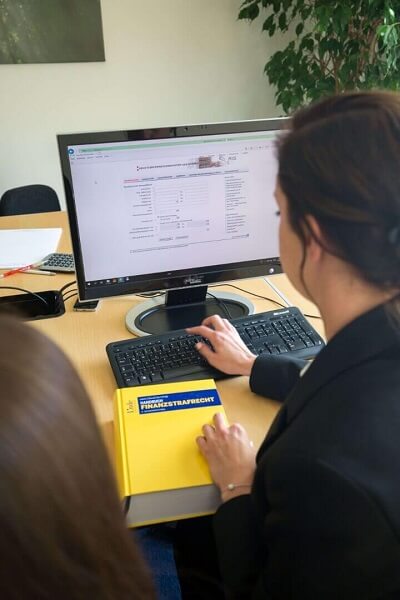Benefits of Social Insurance for Pregnant Self-Employed Individuals
This article provided a comprehensive overview of the various benefits of social insurance for pregnant self-employed individuals. From in-kind benefits such as medical assistance to business assistance for seamless operations and the entitlement to maternity allowance as financial support, the options available to self-employed individuals during pregnancy were highlighted. Emphasis was placed on the importance of timely reporting of pregnancy and taking the necessary steps to access these benefits.
Benefits of Social Insurance for Pregnant Self-Employed Individuals
As a professional tax consultant in Mödling, it is my responsibility to provide you with valuable information that caters to your entrepreneurial needs. Today, I would like to shed light on the benefits of social insurance for pregnant self-employed individuals. Pregnancy is an exciting phase in a woman's life, but as a self-employed businesswoman, there are specific considerations that need to be taken into account.
The Maternity Insurance Event
Under the umbrella of social insurance, benefits are provided through the "maternity insurance event" for self-employed women who are pregnant. This event encompasses not only the pregnancy itself but also childbirth and the subsequent consequences. The insurance coverage begins from the eighth week prior to the anticipated delivery date or on the actual delivery date in case of premature birth.
In-Kind Benefits and Cost-Free Care
During this period, you are entitled to various in-kind benefits. These include medical assistance, support from midwives, certified pediatric and infant care nurses, as well as medical treatments and aids. Upon childbirth, you are eligible for cost-free care in a medical facility, which can extend for up to ten days.
Business Assistance for Seamless Operations
Self-employed women, including those engaged in trade, new entrepreneurs, and female farmers, are entitled to business assistance. Business assistance entails having a helper step in to handle urgent tasks, allowing your business operations to continue uninterrupted. This entitlement covers the final eight weeks before childbirth, the day of delivery, and an additional eight weeks following the birth. In special circumstances where the health of the mother or the child is at risk, the period of entitlement can be extended.
Extended Entitlement in Unique Scenarios
Following a premature birth, a multiple birth, or a Caesarean section, the period of entitlement can be extended to up to twelve weeks after childbirth. If your child arrives earlier than expected, the entitlement period is extended by the number of days the child is born before the anticipated due date. The maximum entitlement period for business assistance is sixteen weeks.
Maternity Allowance for Financial Support
If suitable business assistance cannot be provided, you have the right to receive maternity allowance. This allowance is granted when you consistently utilize the help of a non-business-related helper for the final eight weeks before childbirth, the day of delivery, and eight weeks thereafter. This assistance must be provided for a minimum of four days per week or an equivalent of 20 weekly hours. Similar to the business assistance, specific regulations apply in cases where business assistance is not feasible.
Application Process and Formalities
To avail of these benefits, it is crucial to promptly notify the Social Insurance Institution for Self-Employed Individuals about the commencement of your pregnancy. This notification should ideally be made by the start of the third month before the expected delivery date. The necessary documents and application forms can be obtained from the Social Insurance Institution for Self-Employed Individuals.
Conclusion
As a pregnant self-employed individual, essential social insurance benefits are at your disposal to support both your health and your business. From in-kind benefits to business assistance and maternity allowance, a range of options is available to help you navigate this exciting phase of life. Remember to timely report your pregnancy and take the necessary steps to access these benefits.
I am here to serve you as a professional tax consultant in Mödling. Feel free to reach out to me for assistance with tax and financial matters during your pregnancy and beyond. Do not hesitate to contact me for further information or to discuss your specific needs. Your well-being and business success are of utmost importance to me.















